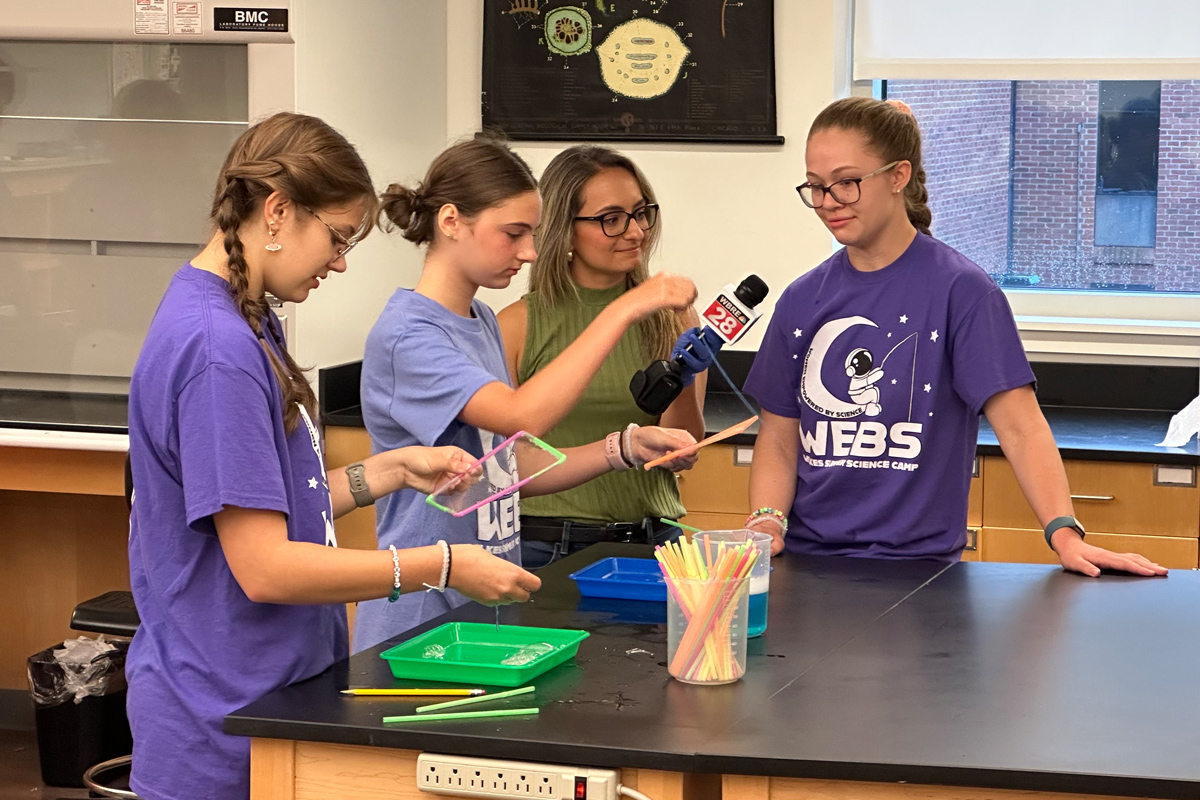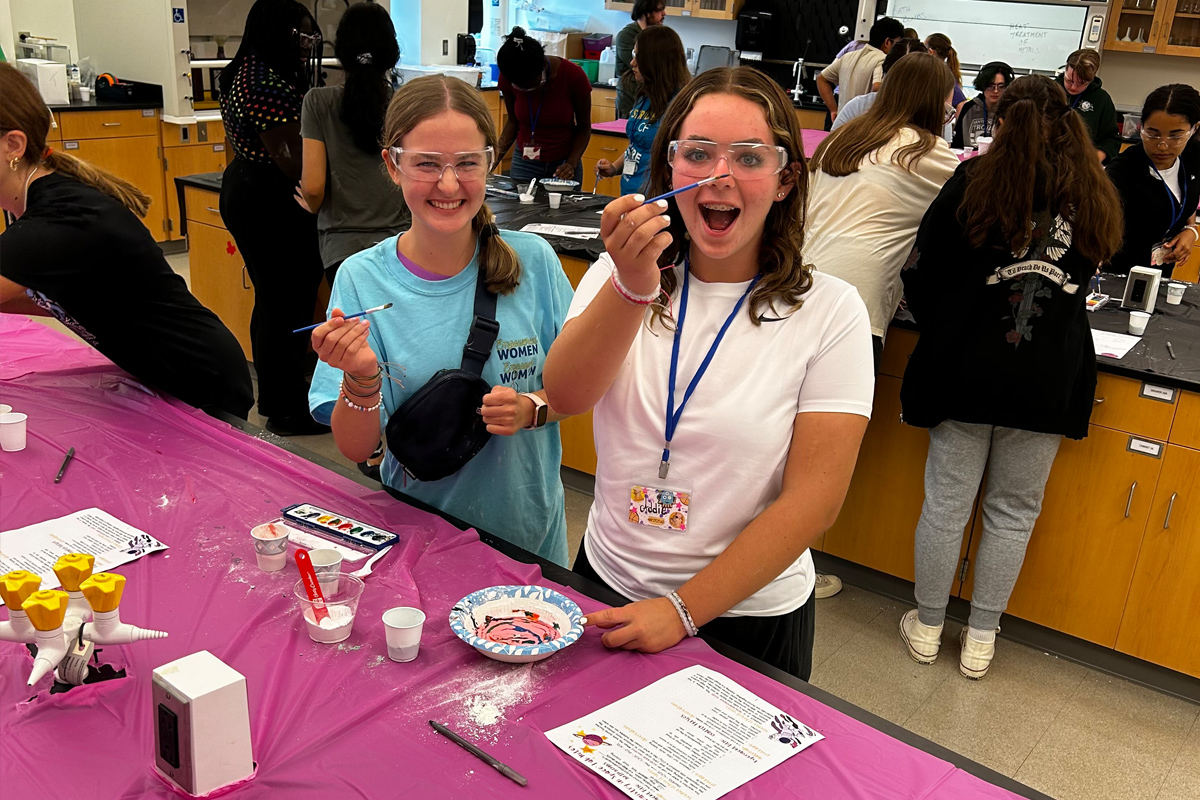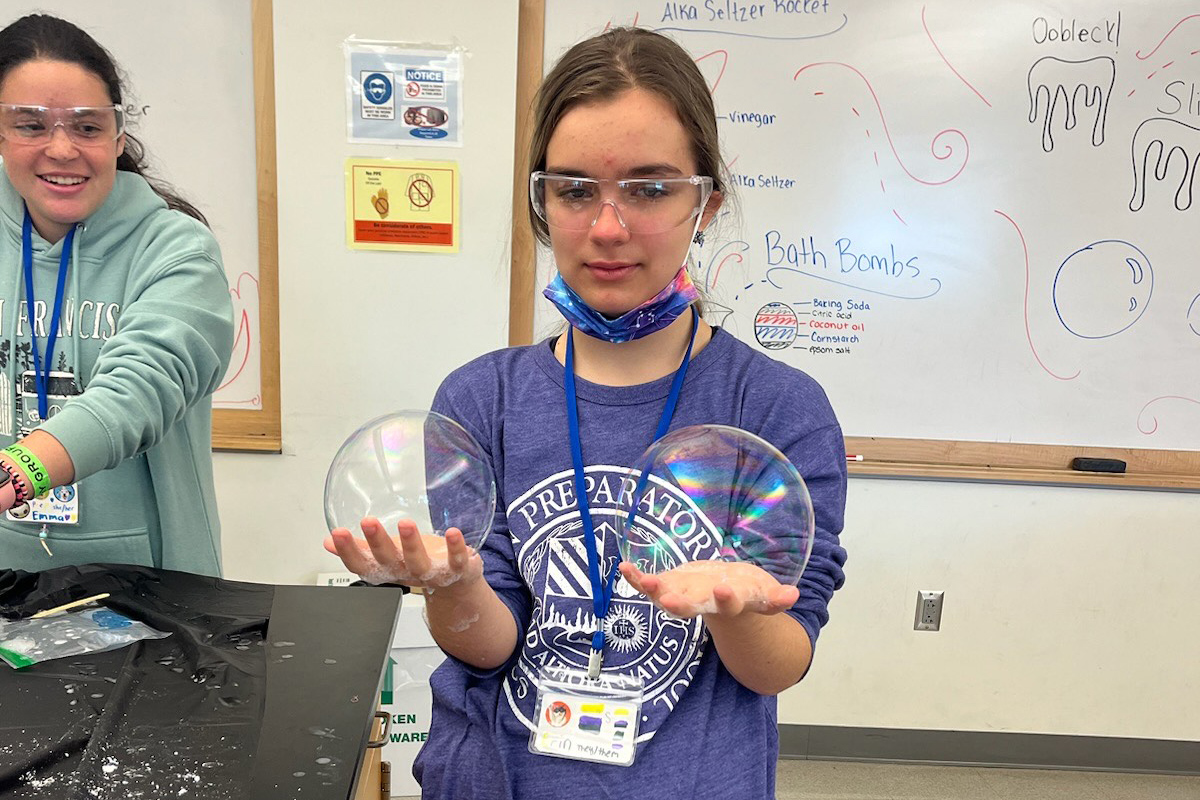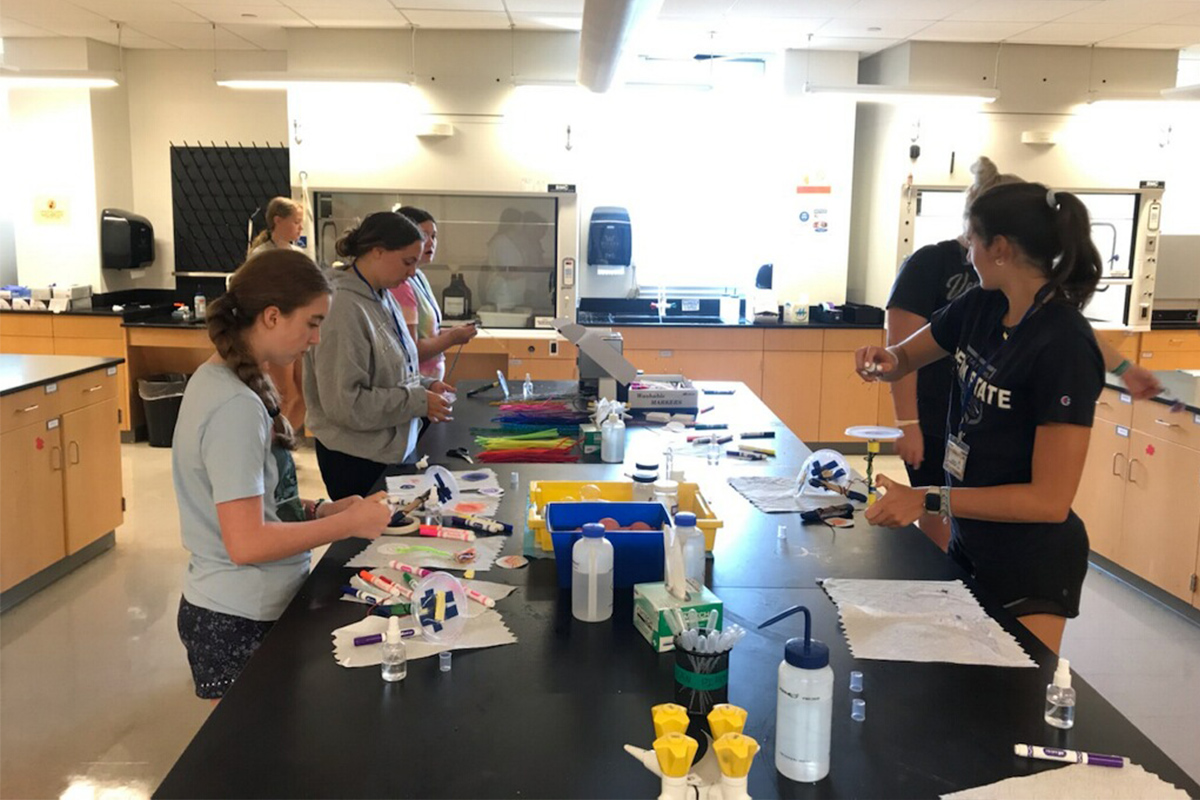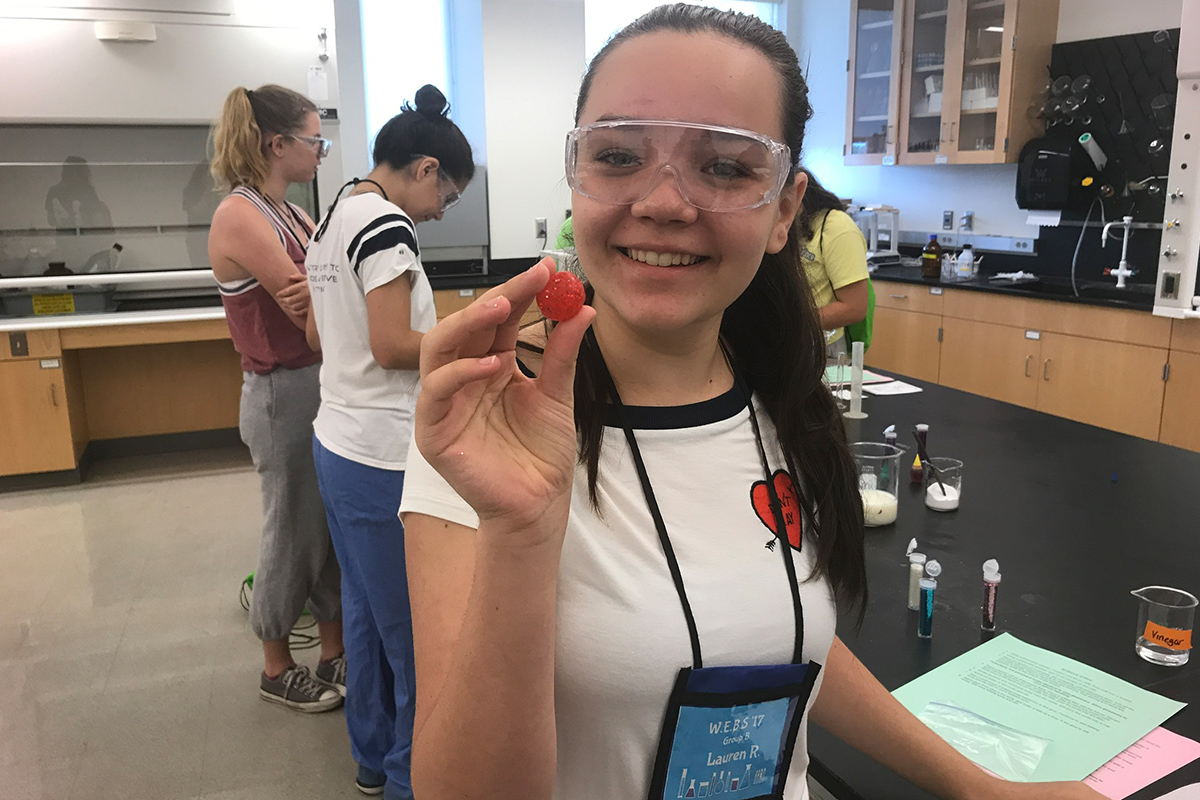The WEBS program, based on the Wilkes University campus in Wilkes-Barre, PA, is dedicated to empowering young people from across Luzerne County through hands-on STEM experiences.
2026 Summer Science Camp
Registration opens Feb. 1!

The annual summer camp offers middle and high school students the opportunity to explore science, technology, engineering, and math through interactive labs, real-world experiments and fun educational activities.
Discover how fun a summer of science can be with WEBS! This summer camp offers exciting opportunities for NEPA students entering grades 7–12 to dive into the world of STEM. Through dynamic labs and interactive projects, campers will strengthen their scientific skills, explore future STEM careers and experience a taste of college life. The program fosters a welcoming and inclusive environment for all genders and identities, promoting curiosity, collaboration and a lifelong passion for science.
The WEBS Program:
- Empowers young people to pursue an education and a career in STEM fields.
- Exposes participants to multiple STEM-based fields.
- Introduces participants to a college campus.
- Connects participants with Wilkes University professors, staff, and students as well as STEM professionals from the community.
- Provides a positive laboratory experience where participants can question, investigate, learn and analyze using fun, interactive, hands-on experiments, as well as develop important laboratory skills.
- Encourages team-building and collaboration amongst young people.
- Creates young leaders.
This program is designed for those who have a sincere interest in the sciences, have potential for a career in the sciences, and wish to develop the skills and knowledge necessary to reach their full potential in this field.
WEBS 1.0 labs include:
- Bone Hunt | A scavenger hunt for bones? Really? WEBS campers will learn how the human skeleton is organized, search the Wilkes campus for “human bones,” and assemble their own skeleton.
- Coastal Impacts of Sea Level Rise | Campers will build several different coastal shoreline environments and then observe the impact of simulated sea level rise. Campers will reflect on how sea level rise impacts different types of coastal environments.
- Converging and Diverging with Shoes | Campers will need a variety of shoes for this lab! After a brief introduction to key concepts in evolution including convergent and divergent evolution, campers will answer these questions: Why do different organisms look the same? Why do related organisms looks so different? These questions and more will be answered as campers look through the wacky ways of evolution with the help of everyone’s favorite accessories: shoes!
- CSI (Crime Scene Investigation) | Using the power of observation and technology in order to solve crimes is the goal of Forensic Sciences. In this CSI laboratory, campers will collect and analyze evidence (hair, clothing fibers, fingerprinting, etc.) to solve a crime and find the culprit.
- Frog Dissection (Optional) | Did you ever wonder what the inside of your body looks like? By dissecting a frog, you can learn a lot about your own anatomy. For those of you who really don’t like this idea for a lab, we will have an alternative activity for you.
- Genetics | Genetics is, in basic terms, the study of inheritance - how we pass traits from one generation to the next and what kinds of things affect what traits we see in different individuals. In this lab, campers will use simulations, live animals (fruit flies), and other activities to investigate and learn more about how genes make us (and other organisms) who and what we are.
- It’s the Balm | Campers will have hands-on experience compounding lip balm in this lab. This activity provides campers an opportunity to use the equipment of the Pharmacy Laboratory at Wilkes University to melt down beeswax and add aromatherapy scents of their choice to create the perfect new lip balm. This activity is loved by people of all ages as it teaches them foundational elements of compounding as they work with pharmacists at Wilkes University.
- Nutrition | Have you ever wondered why every food container lists the chemicals present? Have you ever wondered how that list was made? Humans are made of many chemicals including carbohydrates, fats, proteins and nucleic acids. In order to grow and live, we need more of these chemicals, so we get these chemicals from the food we eat. We will use the fact that each of these chemicals has different properties to determine which of these chemicals is present in some common foods.
- Oil Spill | Campers will participate in a review of recent oil spills and work through experimental methods to evaluate how the spill will travel. Camper groups will use various techniques to effectively remediate oil spills and discuss practical solutions to large spills.
- Escape the Room: Pharmacy Escape Room | In the “Escape the ℞oom” activity, you will work in teams to solve fun pharmacy puzzles and challenges. Campers will learn what pharmacists do—like filling prescriptions, checking for safety, and helping patients use their medicine the right way. It’s a hands-on activity that shows how exciting and important a career in pharmacy can be!
- Pop Pop, Fizz Fizz: Drug Dissolution | Medications are available in many formulations. Campers will work in pairs to evaluate three different medication formulations to investigate which formulation is dissolved in the body the fastest. It is important for pharmacists to know how fast medications will work so they can educate their patients appropriately. This activity will also discuss medication safety and options for safe medication disposal.
- Robots | Campers will program autonomous robots to complete basic missions in the lab. The programming techniques needed to accomplish the basic missions will be used in the robot game, “City Sights,” from the First Lego League competition series. The robot games model a variety of challenges faced by urban planners. They include material delivery, infrastructure repair and toxic waste cleanup.
- You Be the Doctor! | Campers will work in small groups on a case study involving the diagnosis of a medical condition based on symptoms. After researching the symptoms, gathering important and pertinent medical information and making a concluding diagnosis, students will present their project to other camp participants.
The WEBS 2.0 program was created at the request of campers who aged out of our WEBS 1.0 programs but who still wanted to participate in the WEBS experience.
Although many WEBS 2.0 summer campers have attended WEBS 1.0 camp, no prior WEBS experience is necessary to attend the 2.0 camp. However, if campers are placed on a wait list because the program is at capacity, preference will be given to those who have attended in the past when taking campers off the wait list.
The goal of WEBS 2.0 camp is to expose individuals to areas of science and the arts they likely have not experienced. The 2.0 program encourages a love of learning, broadens horizons, introduces new areas of interest and increases critical thinking skills in an environment that fosters independence and challenges one's self through age-appropriate learning and team building activities.
As a WEBS 2.0 participant, you will spend much of your time in state-of-the-art science and engineering labs working with world-class professors and scientists on the Wilkes University campus. Throughout the week there will be opportunities to attend off-site field trips and to serve as mentors to younger WEBS campers.
WEBS labs include:
- Microbe Hunters | Campers will explore the unseen world of microbes by swabbing various surfaces around campus and culturing their samples on agar plates. By observing microbial growth, campers will investigate which environments harbor the most bacteria and discuss hygiene, contamination, and public health.
- Independent Research Project | Campers will design and conduct their own research project on a topic of their choice. They will develop a question, collect and analyze data, and present their findings to fellow campers at the end of the week, building skills in scientific inquiry and communication.
- Field Trip: Hawk Mountain Sanctuary | Campers will take a field trip to Hawk Mountain Sanctuary, where they will hike local trails and observe a wide variety of bird species. This experience emphasizes conservation biology, ecology, and field-based scientific observation.
- Watershed Watch | Campers will compare the water quality of the Susquehanna River and Lehigh Valley waterways using scientific testing methods. Through hands-on analysis, campers will explore environmental factors that influence water cleanliness and ecosystem health.
- Pathfinder: Alzheimer’s Behavioral Analysis | In this neuroscience-focused lab, campers will analyze behavioral data from mice to determine indicators of Alzheimer’s disease. Campers will learn how scientists study neurological disorders and interpret experimental results.
- Zombie Apocalypse: Disease Outbreak | In this lab, campers will simulate a viral epidemic by introducing a “zombie virus” into a healthy population. They will use an indicator to observe how the pH of solutions changes over time, simulating the spread of the infection. Campers will learn about acid-base reactions, pH, and how chemical reactions can simulate the spread of an epidemic.
- Fin-Tastic Personalities | Do fish have personalities? Campers will investigate animal behavior by observing how fish respond to stimuli such as light versus dark environments and food availability. Data collected will help determine individual behavioral differences among fish.
Past WEBS Summer Science Camps
View More Photos external website
Registration
Space is limited. Acceptance is based on a first-come, first-served basis.
Tuition is $300.
Scholarships
Scholarships based on financial need are available. Please contact us for more information about scholarships.
If you have any questions about registering or are interested in applying for a scholarship, please contact:
Tuition Includes...

- Lots of FUN hands-on labs.
- Programs with representatives from local wildlife agencies and other scientific organizations and businesses.
- T-shirt.
- Drawstring bag.
- Lab safety equipment and supplies.
- Closing day celebration.
- Educational activities and take home items.
- Three daily snacks and drinks.
Payment Information
Tuition for the six day camp is $300. You may make your payment online when registering or pay by mail after.
Please register as early as possible in order to secure your seat. Payment is due June 29, 2026.
If paying by mail, make checks payable to "Wilkes University WEBS Program" and mail to:
Wilkes University WEBS
84 West South Street
Wilkes Barre, PA 18766

In 2001, a local middle school made a request that Wilkes University invite their young female students to campus to do laboratory experiments in a college setting in order to inspire these girls, and show them that girls can do science too. WEBS began with the main goal of empowering young women to prepare for and go into science fields in their future, an area where women were historically and significantly underrepresented.
Over the past 22 years, the state of the world has changed. More young women are pursuing science majors for their education and entering STEM-based workforces. While there have been necessary improvements in our society regarding this topic, the fact remains that women still continue to be underrepresented in the science and engineering fields, only making up 34% of the workforce. Further, women still have lower median earnings than men in the same STEM occupations.
This is why, 22 years later, as we enter a new era, although WEBS is still grounded in the same basic feminist roots, it aspires to include all genders and identities in its mission to empower women in science in an inclusive environment. While recognizing that science benefits from the expertise and collaboration of all scientists, one of the goals of WEBS is to ensure that the voices of women are heard amongst the voices of their colleagues. Bringing all aspiring scientists together in a positive, forward-thinking manner will only result in making the field of science stronger.


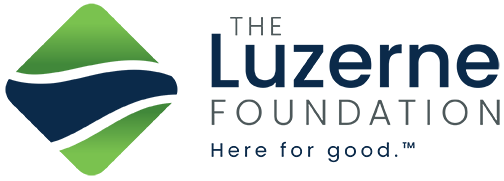
WEBS is made possible by the generous donations of our sponsors:
- UGI
- Pride Mobility
- Memco Realty Company
- The Luzerne Foundation
